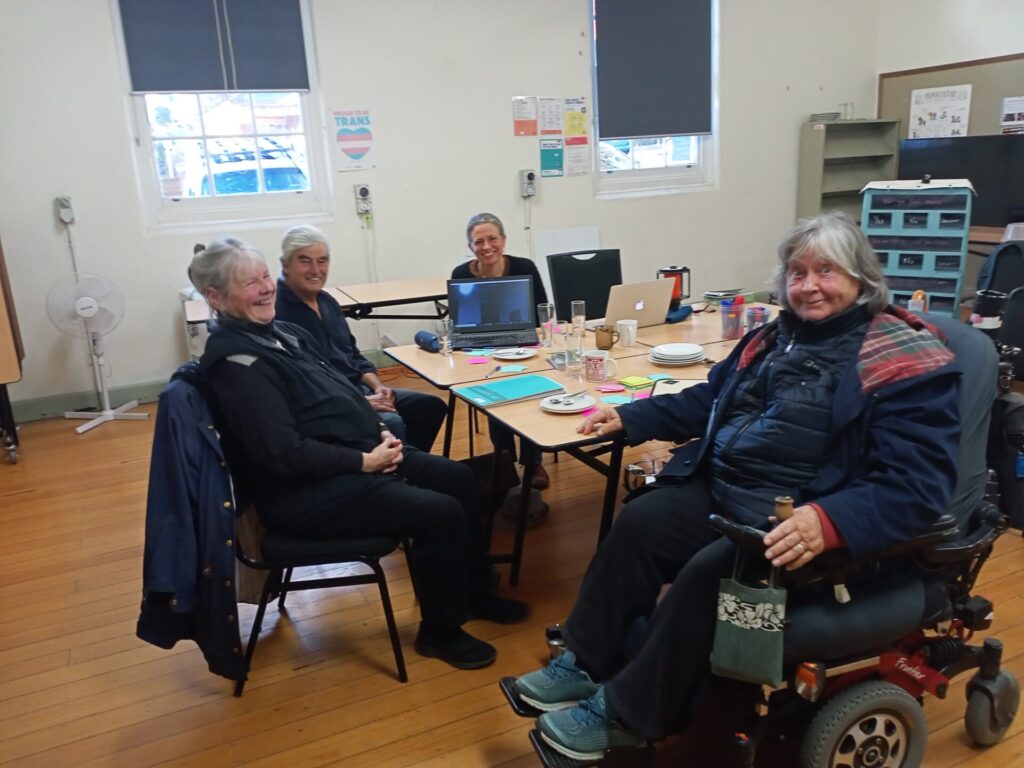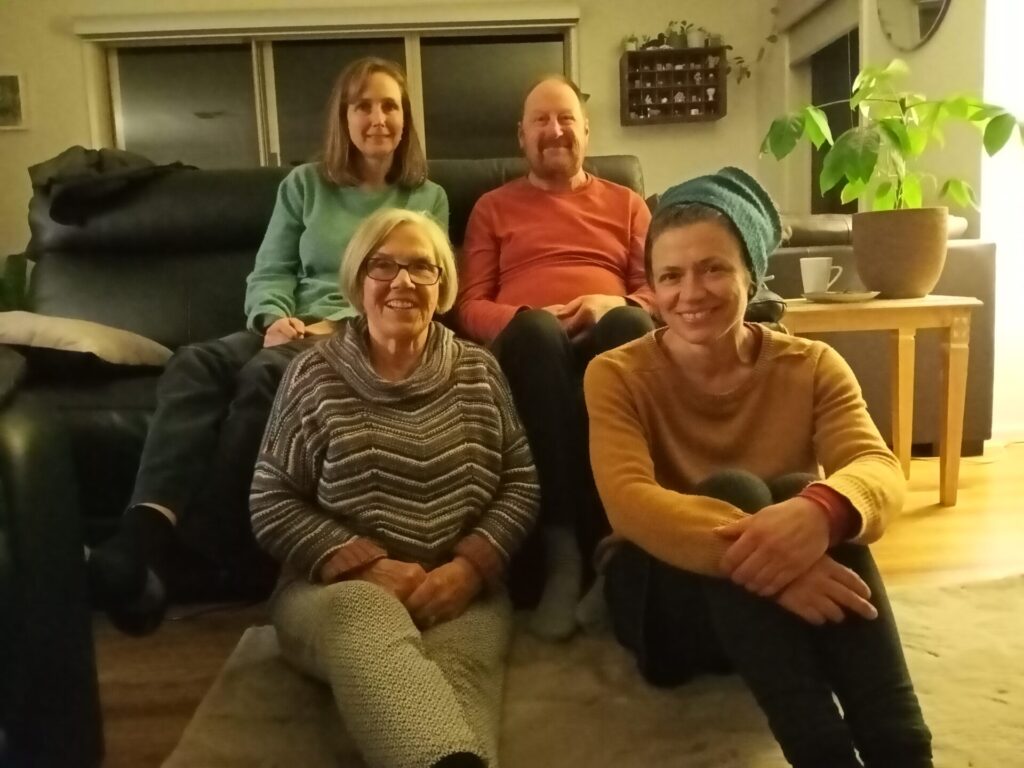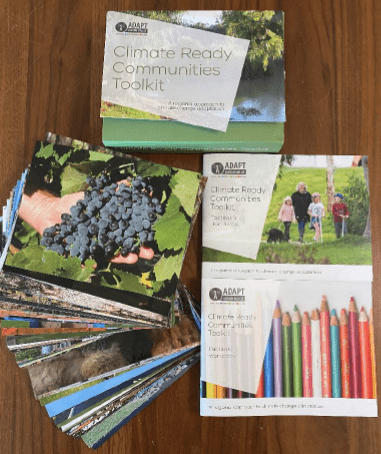Contact
Caroline Neilson
Themes
Organisations Involved
Mount Alexander Shire Council
ADAPT Loddon Mallee
Castlemaine Institute
Central Victorian Primary Care
The Climate Conversations project builds relationships and connections with a diverse range of community groups. It gives participants an opening to discuss their fears and concerns about climate and develop collective climate action.
Climate Conversations is an activation and community relationship building project where volunteer facilitators support community groups to consider the impact of climate change on their group’s activities. Using ADAPT Loddon Mallee’s ‘climate conversation tool kits’ as a starting point, volunteers lead groups through a conversation that encourages them to think about what the group values most, how this is impacted by climate change and how the group intends to respond. The facilitators can also link the groups into other local regional initiatives and with other groups with similar common priority actions.
The Climate Conversations project began in 2022 and thirty conversations are planned extending through 2023. The project has had support from local council, the Central Victorian Primary Care Partnerships program and ADAPT Loddon Mallee. Key to developing the project further is to recruit volunteer facilitators through the conversation process, enabling the project to reach further into parts of the shire community not usually represented in decision making and or not engaged in community climate change discussion and action.
ZNET: emission avoidance and drawdown
- Sharing knowledge and ideas about how to reduce emissions
ADAPT: people, places and sectors are climate ready
- Helping community groups and members to consider and plan for potential impacts of climate on their group activities and key locations.
- Disseminating accurate, relevant information about the impacts of climate change in our region and current adaptation actions undertaken.
- Reaching out to communities under represented in climate decision making
- Working towards establishing a deliberative processes of community engagement to ensure community representation in decision making and climate change action
REGENERATIVE CULTURE: embrace caring for Country and Community, working creatively and a just society
- Encourages embedding of Indigenous self determination in climate change adaptation
- Encourages holistic thinking around understanding and responding to the climate emergency
- Having respectful conversations with community members who may not prioritise climate change and challenging silence and taboos around openly discussing the severity of climate change
- Supports the community being proactive and taking ownership of place based climate responses


